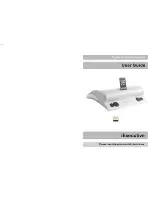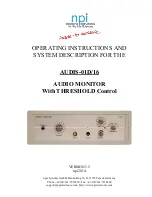
The front two wires provide the primary support, whilst the rear point enables the cabinet to
be tilted, or ‘kelped’. In most instances of the configuration, the cabinet can be flown with
fixed length steels or chains for the front two points. Aside from safety reasons, a minimum of
three points are practically needed to provide the degree of positioning required, and prevent
rotation. The rear point should have a device which allows the length to be adjusted,
while in
the air
, to enable accurate aiming. Tools such as a laser pointer and an inclinometer are very
useful to align the speaker accurately and consistently.
If possible, select two front flying points anchored to independent mounting surfaces, to
ensure that one can act as a secondary safety in the event of the other failing.
Ensure there are sufficient steel cables and sufficient adjustment designed into the rigging
system to enable angling in all required directions (i.e. pan, tilt and yaw, or X,Y,Z)
Before suspending the speaker, make sure you understand how to use eye bolts correctly. See
section 11
7. Array loudspeaker suspension
The principles of flying arrays are the same as for single loudspeakers.
After determining the correct loudspeaker configuration, location, array orientation and
cabinet splay angles, the cabinets comprising the array must be physically arranged to
become a single assembly ready for flying. This can be achieved using the Yamaha array
frames. The safe working loads (SWL) are shown below for different array configurations:
7


































